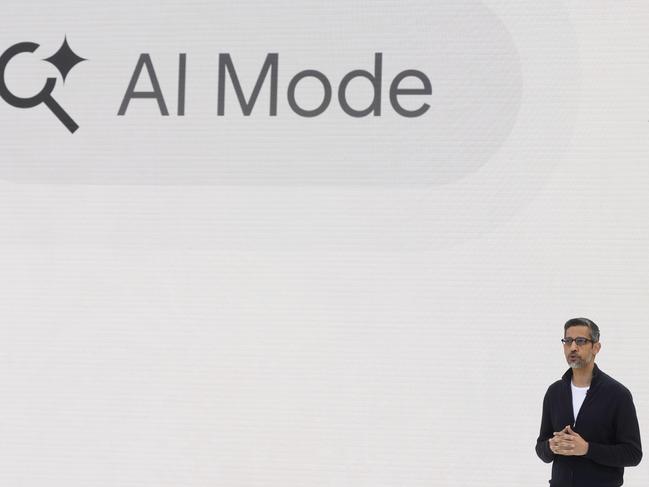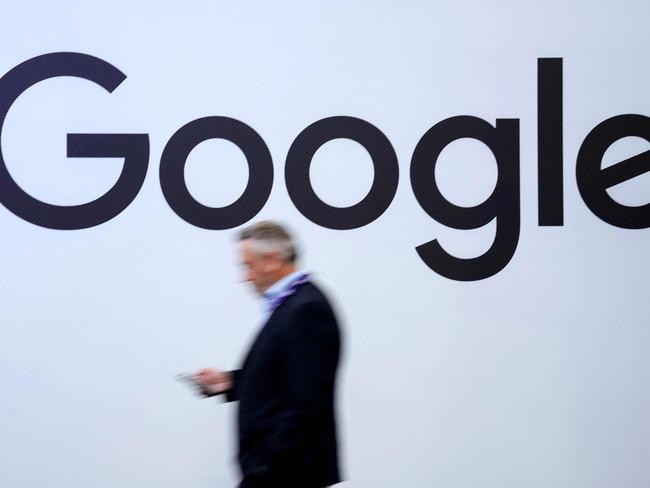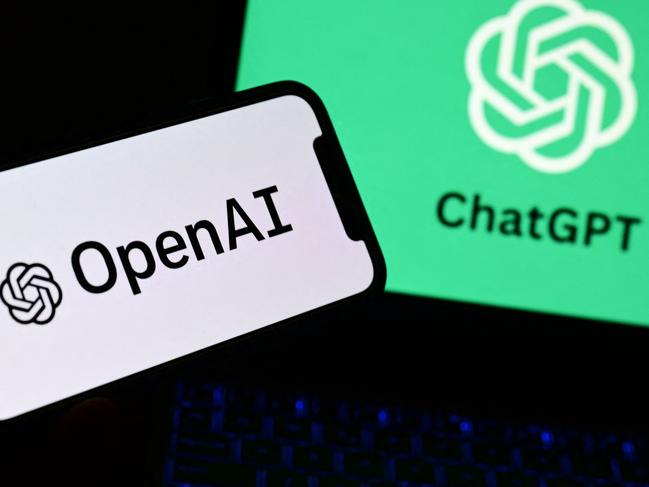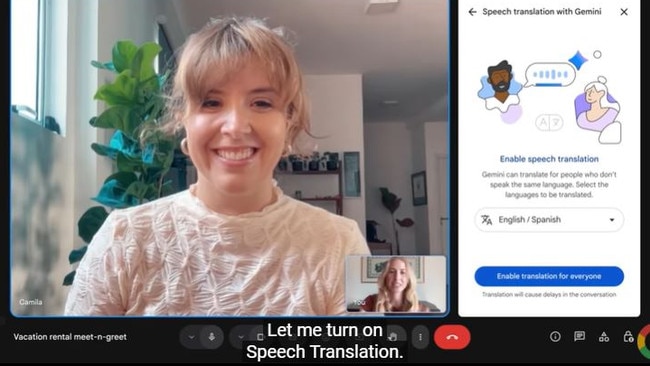‘Reimagining the future’: Google brings ads to AI search in ChatGPT battle
Google has ramped up its fight against ChatGPT and Meta, saying its latest move will “reimagine the future”.

Google is beginning to weave advertisements into its new AI Mode for online search, a strategic move to counter the challenge posed by ChatGPT as the primary source for online answers.
The integration of advertising has been a key question surrounding the immense popularity of generative artificial intelligence chatbots, which have largely avoided interrupting the user experience with ads.
However, advertising remains Google’s financial bedrock, accounting for over two-thirds of its revenue. The rising popularity of chatbots has sparked concern on Wall Street regarding Google’s future earnings.
Google’s AI Mode, one of a multitude of new user features unveiled on Tuesday at its annual I/O conference in California, is perceived as the company’s direct response to the escalating threat of ChatGPT siphoning off search queries and undermining Google’s established business model.

The new mode will facilitate a more conversational interaction with Google during search queries, providing answers in diverse formats, such as video, audio or graphs.
The internet giant said it is testing ad integration within AI Mode responses, building on insights gained from AI-generative summaries – known as Overviews – introduced to search results a year ago.
These Overviews already display comprehensive AI-generated responses above traditional website ads and links.

“The future of advertising fuelled by AI isn’t coming – it’s already here,” Google’s Vice President of Ads & Commerce, Vidhya Srinivasan, said.
“We’re reimagining the future of ads and shopping: Ads that don’t interrupt, but help customers discover a product or service.”
Since their debut at Google’s developers conference a year ago, AI Overview have reached over 1.5 billion users across various countries, according to the company.

Google also said it is extending ads in AI Overviews to desktop in the US, following successful mobile implementations.
Google’s aggressive push into generative AI intensifies its competition with OpenAI’s ChatGPT, which has also incorporated search engine functionalities into its popular chatbot.
Additionally, Google announced it is making AI tools available to advertisers to streamline the creation of online marketing content, mirroring similar initiatives by Facebook owner Meta, Google’s primary rival in online advertising.
New features, available in the US, will enable merchants to leverage AI for effective marketing campaigns and to “power an algorithm capable of targeting new searches and generating additional conversions”, Google said.

Google unveils ‘real-time’ speech translation
AI Mode wasn’t the only major announcement the internet giant made during the conference.
Google Workspace subscribers will now have access to real-time speech translation on Google Meet.
Though the feature isn’t new – users have been able to translate one language to another either on text-to-text or speech-to-text – this is the first time it’s available in voice or video calls.


During a keynote on the feature, Google showed a demo of two users speaking in their native languages, with a human-sounding voice then speaking the translation back.
“While I haven’t tested it out yet, it does seem to be a more convenient way to access a feature that you might otherwise have to hack together with another tab, or by opening your phone and holding it up to a speaker,” Lifehacker Australia’s Eric Ravenscraft wrote in a review.
“Plus, it can be a bit more natural to hear translations spoken out for you, rather than having to rely on translated captions.
“I do wonder whether it can keep up with the natural speed and flow of a conversation, though – nobody likes to feel interrupted.”
‘Jarvis-like’ action intelligence with Gemini
Google also played a demo showing the next phase of its Project Mariner, an AI agent that can perform automation tasks and navigate the website in the way an actual, human assistant might.
The so-called “Agent Mode”, which is integrated into Google’s Gemini app, is a system “that combine(s) the intelligence of advanced AI models with access to tools, so they can take actions on your behalf and under your control”, Google CEO Sundar Pichai said.
“This is a new and emerging area, and we’re excited to explore how best to bring the benefits of agents to users and the ecosystem more broadly.”
With Project Mariner, users can do things like buy groceries online without ever visiting the actual store’s website. Instead, they can ask the agent, and it will do the job for them.
Originally published as ‘Reimagining the future’: Google brings ads to AI search in ChatGPT battle




